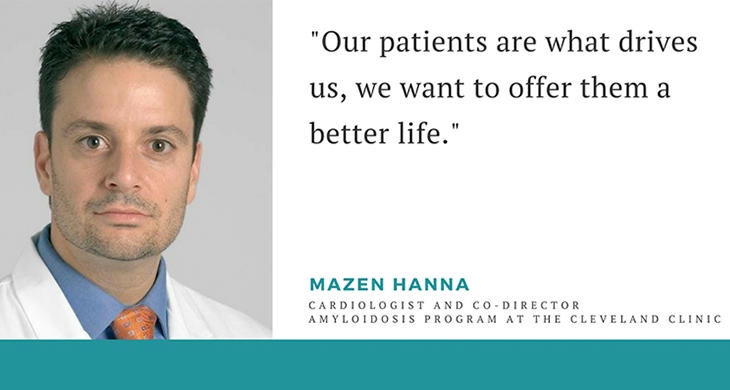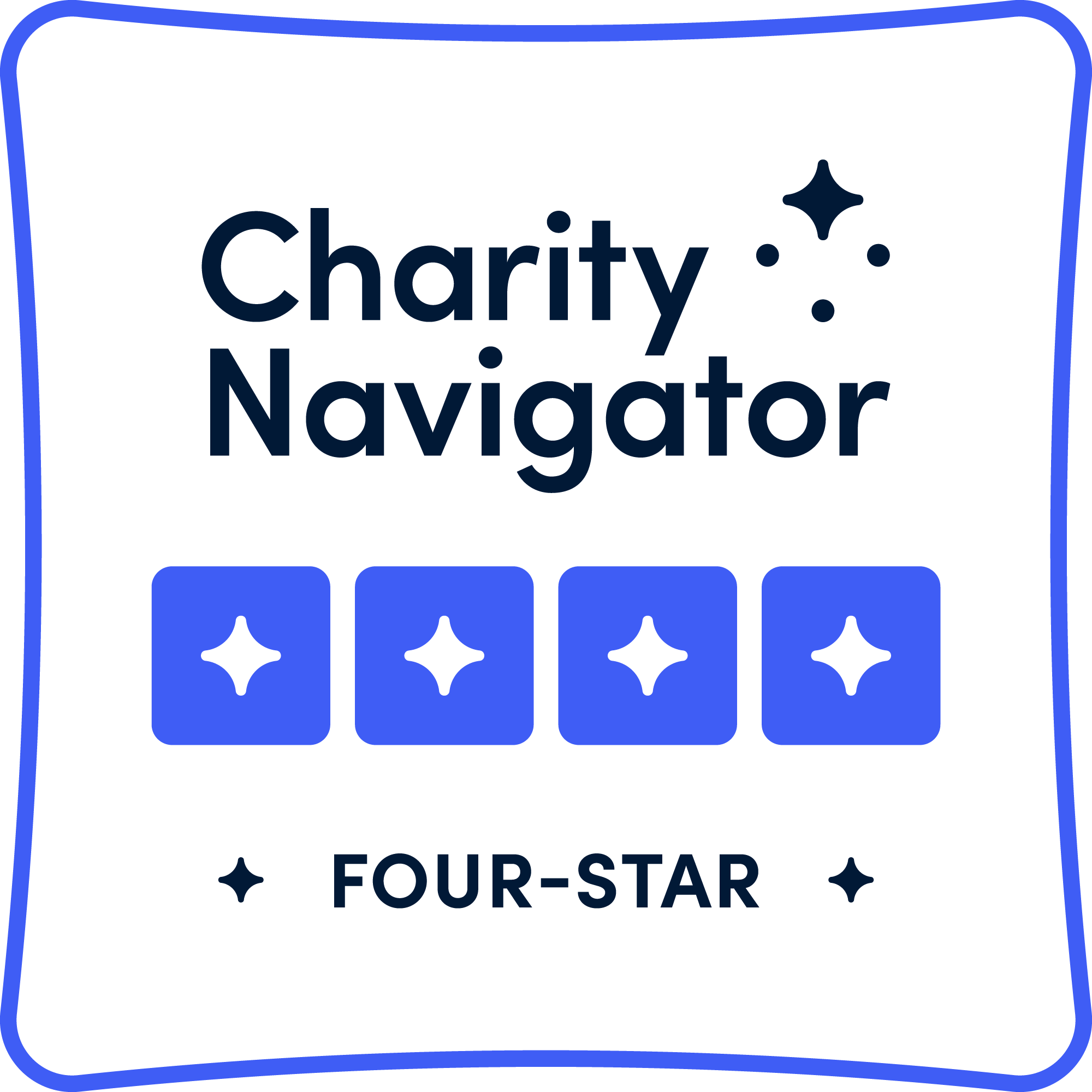Join our email list to stay up to date on the latest Amyloidosis news.
Dr. Mazen Hanna is a cardiologist and current co-director of the Amyloidosis Program at the Cleveland Clinic alongside hematologist, Dr. Jason Valent. He has been a member of the heart failure and cardiac transplant unit in the department of cardiovascular medicine since 2006 as well as the Director of the Heart Failure Intensive Care Unit since 2008.
For the past 10 years, Dr. Hanna has taken a special interest in the field of amyloidosis. He first became interested in amyloidosis during his cardiology fellowship where his team diagnosed an elderly woman with AL amyloidosis. From here, his interest grew as he started recognizing more and more cases during his first two years as a staff member at the Cleveland Clinic. After connecting with Dr. Merrill Benson about a particular patient, Dr. Hanna was introduced to and subsequently invited amyloid specialist, Dr. Rodney Falk, to speak about cardiac amyloidosis at the Cleveland Clinic as a visiting professor. Dr. Falk went on to became Dr. Hanna’s mentor over the following years, helping him develop his interest and expertise in the field of amyloidosis.
Now Dr. Hanna has built strong clinical and research practices in amyloidosis at the Cleveland Clinic. His clinic treats both AL and ATTR amyloidosis and collaborates with specialists from other fields to provide thoughtful and comprehensive care. On his colleagues, Dr. Hanna boasts, “They take fantastic care of their patients and have an excellent collaboration with our transplant teams. They have an experienced bone marrow transplant team, and in 2014 performed their first heart transplant followed by stem cell transplant for a patient with AL who is now doing very well. The clinic also has experience in liver and heart transplants for hereditary ATTR patients and offers many clinical trials in both AL and ATTR, including trials of NEOD001 and tafamidis”.
In 2015, one of Dr. Hanna’s patients made a 2 million dollar donation dedicated to research of amyloid heart disease. These funds have allowed him to hire a research staff and pursue investigator-initiated studies. Currently, he is leading a study looking at the incidence of amyloid in tissue samples taken from elderly patients undergoing carpal tunnel surgery. Dr. Hanna is dedicated to collaborative research, working with physicians across the globe, and is focused on the future of amyloidosis, stating, “I am hopeful that we will continue to make progress to fight amyloid heart disease. It is an honor to work with such a collaborative community of scientists and physicians of different specialties who come together to further knowledge and develop treatments. Our patients are what drives us, we want to offer them a better life.”




